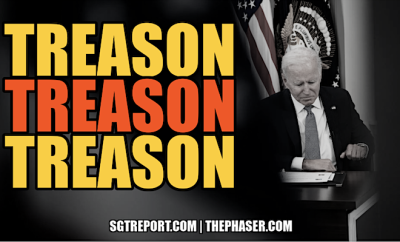 Giza Death Star
Giza Death Star
Politics
OH TO BE A FLY ON THE WALL: ABE AND PUTIN TO MEET…
by Joseph P Farrell, Giza Death Star.com:
In last Thursday’s News and Views from the Nefarium I pointed out that the recent visits of Secretary of State John Ketchup Kerry, and his assistant secretary of state in charge of international confogglement (a nice word on loan to us from Ms. S.H.) and and dirty dealing, Queen Victoria of Nulandistan(thank you Sputnik for that characterization), were in effect a huge diplomatic retreat by the USA over its (mis)handling of the Ukraine. Indeed, you’ll recall that in the Sputnik article, very clear statements were made that as far as Moscow was concerned, the USA had no place at the negotiating table with the Ukraine, and the European powers, Russia, France, and Germany. As far as Moscow is concerned, this is a Moscow-Paris-Berlin show, all others not invited, except, of course, Kiev, appearing in the role of Prague in the 2015 update of the 1938 Munich conference. (Of course, the Munich comparison fails in one significant respect, namely, that neither Paris, Berlin, nor Moscow — contrary to silly American media spin — have any plans to annex the Ukraine).
But there’s more indication of the continuing slide of American diplomatic weight in global geopolitics, and this time, it’s coming from the other side of the world, and the impending summit between Russian Federation President Vladimir Putin, and Japanese Prime Minister Shinzo Abe, as signified by this very important article from RT(Russia Today):
Japan: Putin’s visit to Tokyo may settle Kuril Islands dispute
As one might imagine, there’s all sorts of potential here for our trademark “high octane speculation,” not the least of which is that the source for this story is RT. Indeed, last year I blogged about the then-impending state visit of Mr. Putin to Japan, a visit that was cut short by Japan once again playing “willing satrapy” of the USA, a point made by the RT article at its close:
“Japan’s Foreign Ministry announced plans to organize a visit by the Russian president by the end of this year. A previous visit, scheduled for autumn 2014, was disrupted due to Tokyo’s support for the American-led anti-Russian diplomatic campaign”
The visit, when (not if) it occurs, will be a first for a Russian head of state and government, particularly, as the article itself indicates, the two nations have yet to formalize a legal treaty of peace ending World War Two, and resolving the outstanding issues, among them, the Russian occupation of islands in the Kurile chain once belonging to the Japanese Empire, and which that Empire would very much like to see resolved.
The real surprise here is what RT is reporting about this event, and how it is reporting it, for one needs always to remember that the Russian media is much more overtly entwined with the Russian government than are the more covertly intertwined and ostensibly “free press” of the west with its various governments:
“Tokyo has signaled it would like Vladimir Putin to finally resolve a territorial dispute and sign a peace treaty 70 years after the end of World War II. The Kremlin said it would welcome dialogue.”
Later in the article, of course, a link occurs indicating that Russian troops on the disputed islands have been “modernized.” Viewed in the good old fashioned Cold War sort of way, this would have been interpreted as Russia simply telling Japan, “Yes, we’ll talk about it, but in the end, we’re keeping the islands, we can all shake hands, and you can return to Tokyo empty-handed.” Dialogue, Soviet-style.
But the Japan of 2015 is hardly the Japan of 1945 with its obsolete artillery and tanks facing Russian Stalin tanks and artillery divisions. Indeed, as regular readers here know, Mr. Abe has been pressing hard for an expansion of Japanese military spending in response to pressure from Washington for Japan to assume a greater role in Pacific security in the region. And as I have speculated here in previous blogs, ultimately Japan will have to dramatically expand its military capability anyway, as American power wanes and as the world-wide reaction against American unipolarism continues to advance, including in Japan where pressures to remove American military bases have reached new highs. Inthe long term, in other words, it is in Tokyo’s best interest to have a more sizeable military, as its economic interests lie with Asia, and if it hopes to carry any counterbalancing weight to growing Chinese power, it must have it.
The same applies to Russia. Notwithstanding current Chinese-Russian friendship, and the growing scale of Chinese investments in Russian Siberia, Russia is not about to allow those economic influences to gain a measure of autonomy for the region from Moscow, nor to allow that influence to make Siberia an essentially Chinese preserve. But to do that, it will need its own counterweight in the region. Enter Tokyo.
So what could be in the cards during that summit? Oh to be a fly on the wall! But reading between the lines of the RT article a bit, and parsing it rather closely, Russia may be signaling that it is ready to make a deal over the disputed islands, in return, perhaps, for a hard bargain, for some heavy Japanese investments, technology swaps, and perhaps, even, a measure of influence over Mr. Abe’s rearmament plans. And perhaps Moscow might even be manuevering itself into a position to broker the “summit event of the century,” that long-awaited, and in certain circles, feared Tokyo-Beijing summit. After all, it might be too much, now, to expect Emperor Akihito to be invited to the Forbidden City, or for Mr. Xi to be invited to tea in the imperial palace in Tokyo. But, it might not be too out of the ordinary for both to visit the Kremlin at more or less the same moment in a kind of “Camp David” moment of history. Russian chai is very good, after all.
Whether or not that happens or not remains to be seen. My bet is that sooner or later, Chinese and Japanese heads of state and government will simply have to started talking directly and openly with each other. But just the fact that Mr. Abe has communicated through subordinates that he wants to sit down and talk with Mr. Putin is significant, for you can bet that he did not seek nor get Washington’s approval. And the fact that Mr. Putin has signaled, through his subordinates, that he’s open to dialogue, is hugely significant. If it comes off, then the days of Queen Victoria of Nulandistan and her unipolarist neo-con ilk are greatly numbered, and the USA will have to rethink its entire foreign policy assumptions from the ground up, and evolve a real and more realisticstrategy.
See you on the flip side…
Read More @ Giza Death Star.com

















